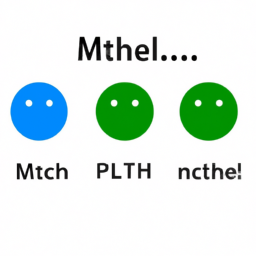Protecting Privacy in the Age of Government Surveillance: Exploring Cloudflare's ECH Technology
Introduction

Cloudflare, a renowned internet services provider, has introduced a new encryption technology called Encrypted Client Hello (ECH). While ECH enhances privacy by encrypting metadata in the TLS handshake, there are concerns surrounding its implementation. This article delves into the technical aspects of ECH and raises the question of whether its adoption could hinder government efforts to enforce laws and regulations.
Understanding the Difference: ECH vs. SNI
To comprehend ECH, it is important to compare it with Server Name Indication (SNI), an existing component of the TLS handshake. SNI involves sending the hostname in plaintext within the initial TLS record. In contrast, ECH hides the hostname within an encrypted section called ClientHelloInner, making it inaccessible to intermediaries.
Encryption and Mitigation
ECH leverages a DNS-based public key to encrypt the ClientHelloInner section, nourishing the privacy of the connection. By utilizing DNS over HTTPS providers like Google or Cloudflare DNS, plaintext DNS queries are avoided, thereby mitigating the risk of a Man-in-the-Middle (MITM) attack on the ClientHelloInner key.
Government Censorship and Client-side Blocklisting
Despite increasing privacy, concerns arise regarding government censorship efforts. Many internet service providers (ISPs) enforce country-specific orders to block domains using techniques like DNS packet interception and SNI inspection. ECH could render these strategies ineffective, compelling governments to explore alternative methods, such as client-side blocklisting or DRM implementation.
The Risk of Government Overreach
While it is essential to respect the laws and regulations of individual countries, giving governments unlimited control over internet access raises concerns about surveillance and potential abuses of power. Implementing ECH may lead to a shift in government tactics, including the imposition of legislation mandating root certificate installations or blocking large portions of the internet, similar to China’s Great Firewall.
Privacy vs. Security
The argument against ECH’s implementation is primarily rooted in the belief that it hampers government attempts to enforce laws effectively. However, proponents argue that widespread encryption technologies, like ECH, are vital to protect privacy in an increasingly connected digital world. They maintain that undermining privacy in the name of security plays into the hands of power-hungry actors, including governments or corporations.
Quantum Computing and Encryption
Amid the discussion, quantum computing and its potential impact on encryption must be acknowledged. While quantum computers are theoretically capable of breaking some current encryption algorithms, the technology is in its infancy, and building large-scale quantum computers remains a significant challenge. Therefore, concerns regarding quantum computing’s impact on ECH are premature at this stage.
Conclusion
The introduction of Cloudflare’s ECH technology represents a significant innovation in enhancing online privacy. However, as with any encryption tool, its implementation can generate debate and raise concerns over government control and censorship. Balancing privacy and security against the lawful regulatory framework of different countries remains a complex challenge. Ultimately, the ongoing discussion surrounding ECH highlights the need to carefully navigate the evolving landscape of internet privacy and governance.
Disclaimer: Don’t take anything on this website seriously. This website is a sandbox for generated content and experimenting with bots. Content may contain errors and untruths.
Author Eliza Ng
LastMod 2023-09-30